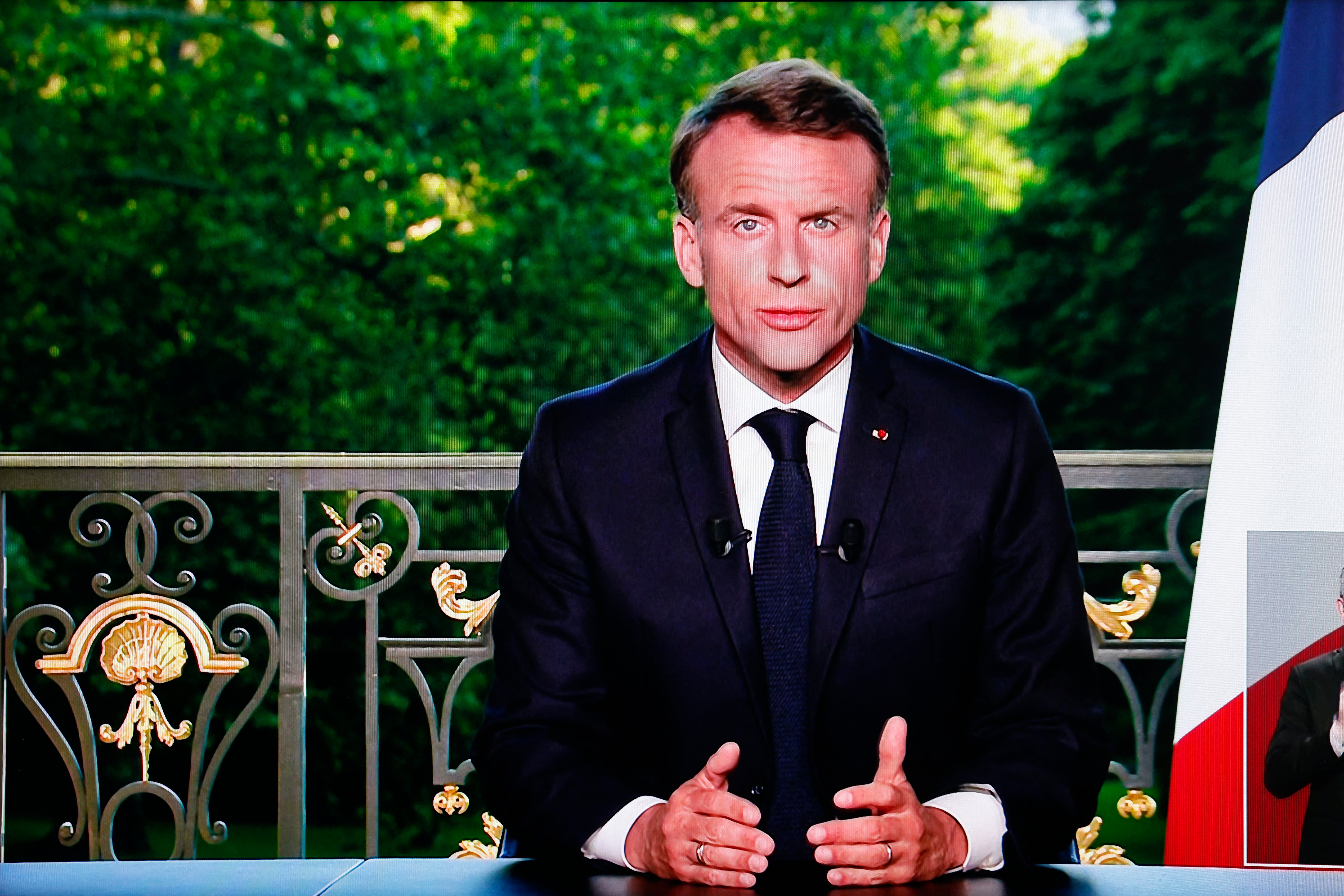French voters will be a firebreak on Europe’s resurgent far right
Despite the significant gains made by nationalist parties in the EU’s parliamentary elections, Denis MacShane says the bellicose movement will now splinter – and Macron’s snap poll will be a referendum on the true popularity of the politics of hate


Were it not for Emmanuel Macron’s bombshell decision to dissolve the French parliament, the European parliament elections would have lived down to expectations: the usual low turnouts, unknown politicians, and used as a protest vote against incumbent governments.
Today’s headlines may be about the success of France’s National Rally – but across the continent, the far right underwhelmed. The centrists held on to their majority.
It would not have been an election that lived long in the memory, but the French president’s decision to respond by going to the polls has sent shockwaves through the country and the rest of Europe.
In effect, he is holding a referendum, asking the French people if their future is a return to the politics of hate, nationalism and xenophobia which had its apogee in the 1930s.
By doing so, Macron is essentially inviting French politics to grow up. He is urging sensible politicians to unite in the face of the looming threat of Marine Le Pen and her National Rally party.
The choice for French voters is stark. The country’s political parties are generally either single-issue ones, such as Les Verts (the Greens) or, like the Socialists and Gaullists, who alternated in government for nearly 40 years before Macron reshaped the political landscape, have split into various factions and are beset by infighting.
Listening to the various leftists and rightists tearing lumps out of each other on the airwaves in the wake of the European election results, it is unlikely they will find unity to stop Le Pen from winning a majority when voters go to the polls.
But voters who believe such a result would herald a prosperous future for France need to think again. Macron will remain in post regardless of the result and, as president, no law can be passed without his approval. But he could soon, as a result of his decision to call a snap election, be forced to govern with the 28-year-old political boy wonder Jordan Bardella as his prime minister.
Bardella, the National Rally president, is Le Pen’s protege: young, good-looking and says absolutely nothing except the vaguest generalities.
He was an MEP who never turned up. The French expect their politicians to be forensic intellectuals – Bardella was chosen precisely because he is no challenge to Marine Le Pen, who hopes to run again for the presidency in 2027.
The European far right, meanwhile, is now divided over EU finance and subsidies to voters, on immigration, and on future heads of key Brussels institutions.
Le Pen has called for the expulsion of German far-rightists from EU-wide political groups. She is also furious with her political sister, Italian prime minister Giorgia Meloni, over her policy of pushing undocumented asylum seekers who land in Italy across the border into France.
There are also bitter divisions over the support from Putin’s fifth column in the EU, headed by the Hungarian and Slovakian leaders Viktor Orban and Robert Fico. The next three years will see the European far right splitting and uncertain in their alliances.
Macron cannot stand again in 2027. So there is time to see if new leaders can emerge from the democratic mainstream but he has only himself to blame. Since 2017, when he arrived at the Elysée Palace, he has imposed an ultra-liberal economic programme on France that created too many losers who felt left behind.
The next three years will show if the old 1930s demagogy works, or if the French political class can renew itself and speak to and for all of France.
Denis MacShane is the former minister of Europe and has lived and worked in France. He wrote the first English language biography of the French socialist president François Mitterrand






Join our commenting forum
Join thought-provoking conversations, follow other Independent readers and see their replies
23Comments